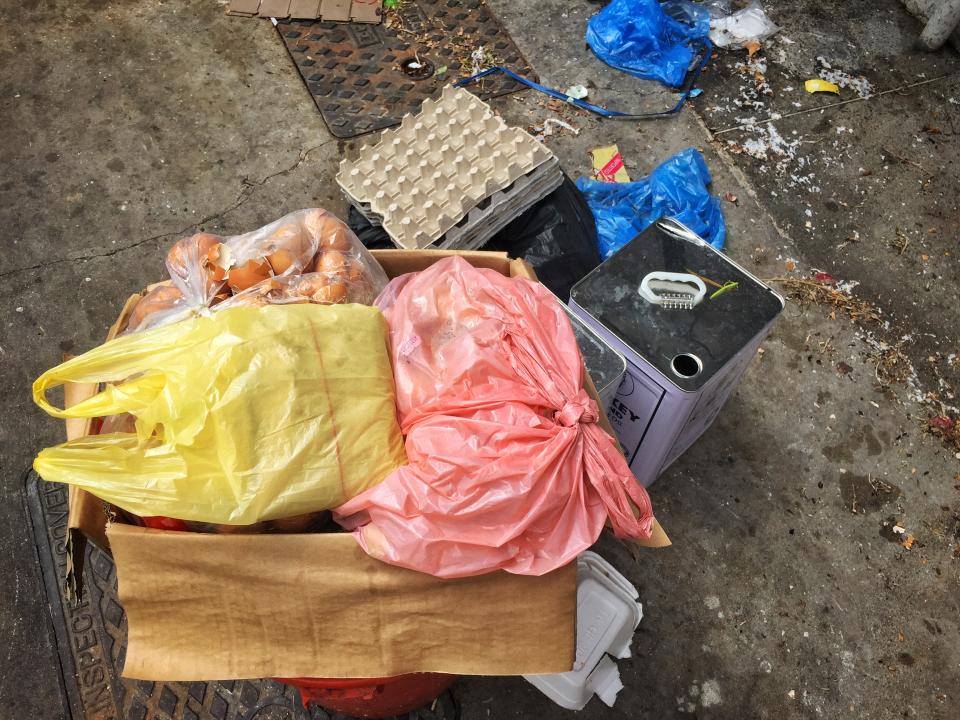Charging for single-use plastic bags? Local context must be considered, says Amy Khor

SINGAPORE — Singapore’s “local, unique context” must be considered when it comes to the issue of imposing charges for single-use plastic bags, said Senior Minister of State for the Environment and Water Resources Amy Khor in Parliament on Tuesday (6 August).
“We are interested and closely monitoring developments on this front in other countries on how they manage their disposables. We will study their policies and implementation outcome and see how they fit into our local context,” said Khor in response to questions raised by several Members of Parliament (MPs).
“Currently, instead of just singling out single-use plastics, we are focusing on reducing excessive consumption of all types of disposables,” she said.
Khor cited the practice of HDB residents bagging rubbish before discarding it as an example of why the government is choosing such an approach.
“For years, we worked hard to inculcate this habit of bagging rubbish before disposing it to maintain good public hygiene, and I think we don't want to undo such efforts,” she said.
Singapore also incinerates all its waste and, hence, does not have to deal with the challenges faced by countries that are more reliant on direct landfilling.
She also noted that a life cycle assessment study conducted by the National Environment Agency (NEA) showed that replacing plastic bags with other types of single-use packaging materials is not necessarily better for the environment.
“In fact, the British government has estimated that a cotton tote bag will have to be used 173 times before its greenhouse gas emissions impact improves beyond that of the plastic bags that we use to line our bins,” said Khor.
Strengthening campaign efforts
Nee Soon GRC MP Louis Ng, who last October raised an adjournment motion in Parliament to propose making single-use plastic bags chargeable, pointed out on Tuesday that the UK saw an over 80 per cent decline in the use of plastic bags after introducing a fee.
A study by the Singapore Environment Council released last year showed that 820 million plastic bags are taken from supermarkets here every year.
“We're not saying ban or replace plastic bags, but we're calling for a plastic bag charge... so that we don't over consume it. And I think if we focused on this, then the ‘Say Yes to Waste Less’ campaign will go a lot faster,” Ng added.
The campaign, launched by the NEA last month, is aimed at getting consumers to decline disposable cutlery with takeaway and delivery meals and opting for reusable cutlery instead.
“We have just strengthened our efforts in terms of the campaign,” said Khor, adding that the government will be taking its efforts upstream to tackle the amount of packaging used by businesses as well as the waste they generate.
To this end, an Extended Producer Responsibility framework will be implemented by 2025, she added.
The government will also be looking at the efficacy of these policies while also monitoring public reception to the idea of a plastic bag levy. Companies, such as supermarkets and retailers, can already do this on their own volition and the government will support them, Khor noted.
No overwhelming support for plastic bag charge
Echoing Ng’s sentiments, Mountbatten SMC MP Lim Biow Chuan questioned the government’s strong “resistance” to imposing a charge for plastic bags and urged it to re-consider the former’s proposal.
In response, Khor stressed that feedback gotten thus far do not show an “overwhelming” support for the implementation of a charge on plastic bags.
“In fact, every time there's an issue on this, there will always be views from both sides of the camps,” she added.
Last month, New Zealand banned the use of single-use plastic bags, joining more than 80 countries which have introduced similar bans. Companies that break New Zealand's ban will face heavy penalties, including fines of up to NZ$100,000 (S$90,451).
In June, Canada announced plans to ban disposable plastic items, such as straws, cutlery and stir sticks, from 2021.
Related stories:
More than 270 F&B outlets in Singapore to remove straws from 1 July
4 supermarket chains in team-up with DBS, SEC to push for reusable bag usage
Annual supermarket plastic bag usage can fill 126 Gardens by the Bay: study

